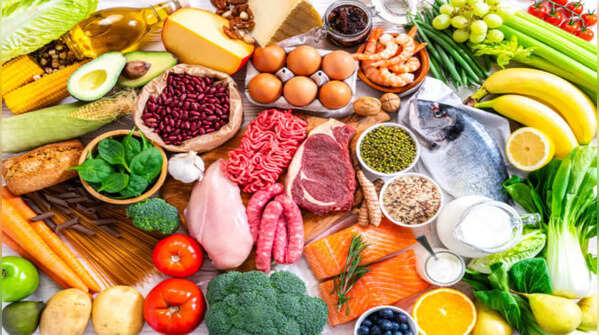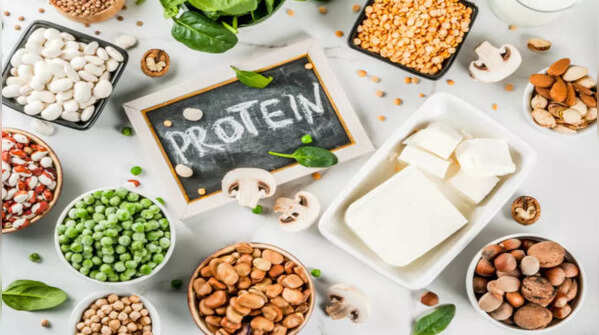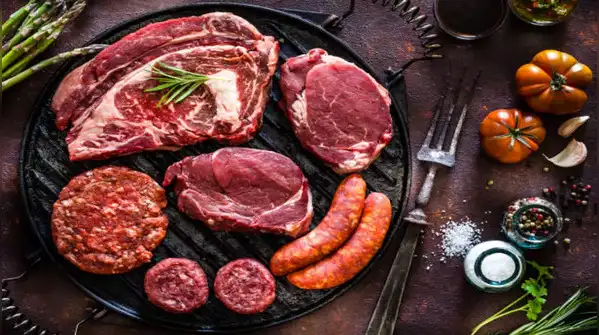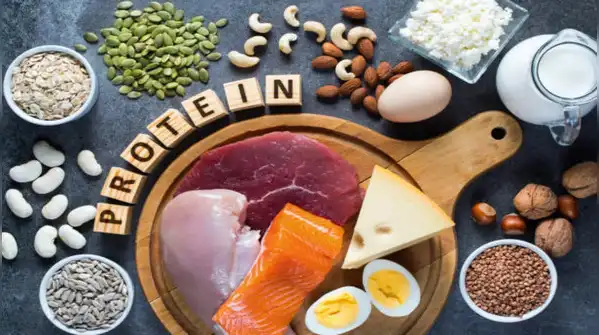
1/6
Animal vs. plant protein: What's the real difference?
In today’s world, nutrition plays a key role. And the debate arises between animal and plant protein. People are often shifting towards healthier and more sustainable lifestyles. Understanding fundamental differences between these two protein sources makes informed dietary choices.

2/6
What is protein and why does it matter?
Protein is a building block of amino acids that are essential for building muscle mass, growth and repair of tissues, supporting the immune system, and producing enzymes and hormones. Now let us know what animal protein and plant protein are. Macronutrient is made up of amino acids, essential for building muscle, repairing tissues, supporting the immune system, and producing enzymes and hormones. While our body can make some amino acids, nine of them—known as essential amino acids—must come from food.

3/6
Animal protein: Complete but cautious
Animal proteins—proteins that are found in various sources such as meat, poultry, fish, eggs, and dairy—are known as complete proteins because they contain all nine essential amino acids. Animal protein is highly bioavailable, meaning it’s easier for the body to digest and utilize. It’s ideal for individuals looking to build muscle or recover from illness quickly. All the animal proteins are not equally made. Processed meats such as red meats and sausages contain higher levels of saturated fats and cholesterol, which may risk heart disease if they are consumed in excess amounts. Moderation is key. Choose lean meats, fish rich in omega-3s, and low-fat dairy to get the benefits of animal protein without the drawbacks.

4/6
Plant protein: Clean, green, and gaining ground
Plant proteins are the food sources that come from plants, including legumes such as lentils and chickpeas, beans, whole grains including seeds, nuts, quinoa, white rice, wheat, and vegetables. Plant-based sources are often considered incomplete food sources as they lack essential amino acids. But consuming it with the right food choices, such as rice with beans or hummus with whole-grain bread, can provide you with all the essential amino acids. “Plant proteins offer additional health benefits—fiber, antioxidants, and lower fat content—making them excellent for heart health, diabetes, and weight management." They are more environmentally sustainable and can be easily produced with few resources and are the best choice for those looking to be environmentally conscious.

5/6
The nutritional difference: animal protein vs. plant protein
Animal protein contains all the complete and essential amino acids, whereas plant protein lacks all the essential amino acids. Animal protein is rich in nutrients such as B12, heme, iron, zinc, vitamin D, and omega-3s, whereas plant protein is rich in fibers, antioxidants, phytonutrients, and unsaturated fats.

6/6
Which one is better?
“Your protein choice should align with your health goals, lifestyle, and personal ethics,” says Dr. Archana Batra. “For muscle growth and recovery, a combination of both animal and plant sources can offer balanced nutrition. ”For vegetarians or vegans, careful meal planning is key to ensure adequate protein and nutrient intake—especially vitamin B12, iron, and omega-3s, which are more abundant in animal products.
Follow Us On Social Media

 7 hours ago
47
7 hours ago
47




























 English (US)
English (US)